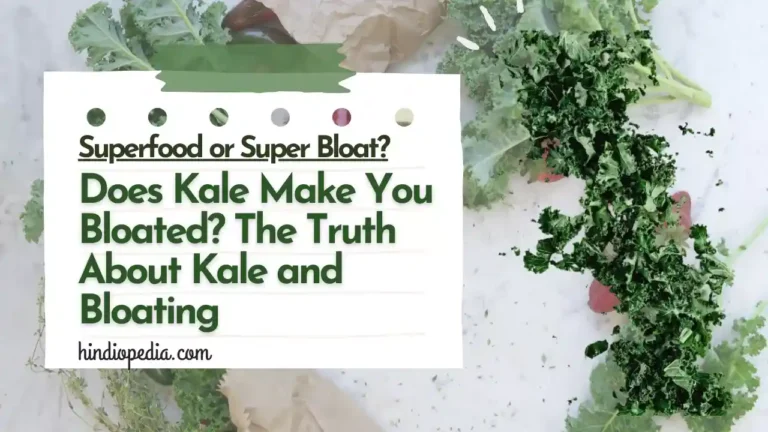Is Jello Good For You? Health Benefits and Risks of Eating Jello
Jello is a popular dessert. It’s wiggly, colorful, and fun. Many people love eating Jello. But is Jello good for you?
The Short Answer
Is Jello Good For You?
Yes, Jello can be good for you in moderation, but be aware of its high sugar content.
The Long Answer
What is Jello?

Jello is made from gelatin. Gelatin comes from animal bones, skin, and connective tissues. It is processed to become a powder. When mixed with hot water, it dissolves. When cooled, it solidifies into a jiggly dessert. Jello is often flavored with fruit and sweeteners. It can be found in stores in various flavors and colors.
Nutritional Content
Here is a table showing the nutritional content of a typical serving of Jello (about 1/2 cup or 120 grams):
| Nutrient | Amount per Serving |
|---|---|
| Calories | 70-90 calories |
| Protein | 2 grams |
| Carbohydrates | 19 grams |
| – Sugars | 18 grams |
| Fat | 0 grams |
| Fiber | 0 grams |
| Sodium | 55-75 milligrams |
| Vitamin C | 0% Daily Value |
| Calcium | 0% Daily Value |
| Iron | 0% Daily Value |
Health Benefits
- Low-Calorie Dessert: Jello is low in calories. This makes it a good option for those watching their weight. It can satisfy sweet cravings without many calories. The effect of Jello on weight loss can be positive when eaten in moderation.
- Source of Gelatin: Gelatin has some health benefits. It may improve skin health. Gelatin can help with joint pain. It supports healthy hair and nails. Some people take gelatin as a supplement. Gelatin can also help with digestion. The effect of Jello on digestive health is often positive due to gelatin’s properties.
- Hydration: Jello has a high water content. Eating Jello can help with hydration. This is especially useful for people who struggle to drink enough water.
Potential Drawbacks
- High Sugar Content: Jello contains a lot of sugar. Consuming too much sugar is unhealthy. It can lead to weight gain. It may cause cavities and increase the risk of diabetes.
- Artificial Ingredients: Many Jello products contain artificial colors and flavors. Some people are sensitive to these additives. They can cause allergic reactions or other health issues.
- Low Nutritional Value: Jello is not very nutritious. It lacks vitamins and minerals. Eating too much Jello means missing out on other healthier foods.
Gelatin Alternatives
Some people avoid gelatin for various reasons. Vegans and vegetarians do not consume animal products. Others may have religious or ethical concerns. There are plant-based alternatives to gelatin. Agar-agar, carrageenan, and pectin are common substitutes. These can be used to make similar jiggly desserts.
How to Make Healthier Jello
Making Jello at home allows for healthier choices. You can use fresh fruit juice instead of artificial flavors. Add fresh fruits for extra nutrients. Use less sugar or natural sweeteners like honey or maple syrup. This way, you control what goes into your dessert.
Jello in Special Diets
Jello can fit into many special diets. It is often allowed on low-carb and keto diets. Gelatin contains no carbs. Sugar-free versions are ideal for these diets. Jello is also gluten-free. This makes it safe for people with gluten intolerance or celiac disease.
Effect of Jello on Heart Health
Jello, particularly sugar-free versions, has a low calorie and fat content. However, its impact on heart health is minimal due to its low nutritional value. Consuming Jello in moderation is key. Too much sugar can negatively affect heart health.
Why Do Doctors Recommend Jello?
Doctors often recommend Jello after surgeries or for patients with digestive issues. It is easy to digest and helps keep patients hydrated. Jello can provide some calories and comfort when solid foods are hard to eat. This is why doctors recommend Jello in hospitals.
Is Jello Good for Your Stomach?
Jello is gentle on the stomach. It can be helpful for people with nausea or digestive problems. The gelatin in Jello can aid digestion. Therefore, Jello is good for your stomach in these cases.
Is Jello Good for Your Skin?
Gelatin in Jello contains collagen. Collagen is essential for skin health. It can help improve skin elasticity and hydration. So, eating Jello can be good for your skin.
Sugar-Free Options
There are sugar-free Jello options available. These use artificial sweeteners instead of sugar. Common sweeteners include aspartame, sucralose, and stevia. Sugar-Free Jello nutrition is different from regular Jello. It has fewer calories and no sugar.
Is sugar-free Jello good for you? It can be a better option for those watching their sugar intake.
Is sugar-free Jello good for diabetics? Yes, it is often a safer choice for people with diabetes due to its low sugar content.
Is sugar-free gelatin good for you? Yes, it provides the benefits of gelatin without the added sugars.
Final Thoughts
Is Jello good for you? It depends. Jello can be a low-calorie treat. It offers some benefits from gelatin. However, it is high in sugar and low in nutrients. Enjoy Jello in moderation. Consider healthier homemade versions. Balance it with other nutritious foods.
In the end, Jello can be a fun and tasty part of your diet. Just be mindful of its ingredients and your overall health goals.
Frequently Asked Questions
Yes, Jello can help with weight loss. It is low in calories and can satisfy sweet cravings. However, choose sugar-free versions and eat in moderation.
Jello’s effect on heart health is minimal. It is low in fat and calories, but high in sugar. Excessive sugar intake can harm heart health. Consume it in moderation.
Yes, Jello can be good for digestive health. Gelatin helps with digestion and is gentle on the stomach. It is often recommended for people with digestive issues.
Doctors recommend Jello because it is easy to digest and helps with hydration. It provides some calories and comfort when solid foods are not suitable.
Yes, Jello is good for your stomach. It is gentle and can help with nausea and digestion.
Yes, Jello can be good for your skin. The gelatin contains collagen, which is beneficial for skin health.





